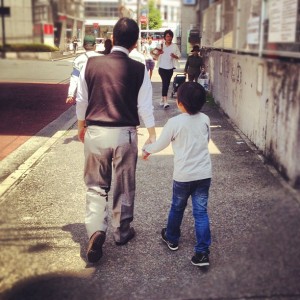Thanks to Scott Hanley for his post on control and relationships. From his thoughts, I have been thinking about parenting and relationships. This article ensued…..
I am currently a judge for a book contest for my publisher. They sent me two boxes of books to read, pass judgment on, and send back. Due to my slow response, I received a heavy dose of books that fit into the “inspirational self help” category. This includes one that is for African-American women, which I may or may not be qualified to judge, but of which I am definitely not the target audience.
In reading all of these, several contain a faith based element to their message. Most of the authors are advising more of some sort of faith, rather than any specific faith, and I respect that. I have always held that any faith that encourages you to become the best, most giving version of yourself is a worthy endeavor. It doesn’t matter to me if you are part of a traditional church, or you meditate and spiritually commune with the insects in your backyard. If it brings you peace and inspires you to strive to be a better person, then there is value to it. My only problem comes in when those of certain faiths feel qualified to judge those who are not part their faith. Do they really believe in their heart that they have found the only “correct” way to worship? But that’s for another time.
Faith, by its very nature, is belief in something without having concrete proof of its existence. It takes many forms. Karma, or the belief that the universe is keeping score of your good and bad deeds, and someday will even the ledger. I have heard the concept of “Paying it forward” or doing good deeds without payment or promise of compensation, I guess in hopes of improving your standing on some sort of cosmic scoreboard, or maybe just on Santa Clause’s list. I have heard the saying that bad things “happen in three’s” where if two unfortunate things occur in your life, brace yourself, because there is one more in store for you. All of these things involve some iteration of faith, that there is someone or something out there keeping track of us and our good (or bad) actions.
For parents, we take leaps of faith all the time. We trust the system (government) that approves the clothes, food, toys, etc. that we expose or children to, that no harm will be done to them. If you take your child to daycare, you are putting faith in those people, often times people you do not know, that they will take care of your child. As our children grow, we often send them to friends’ houses, having trust and faith nothing will happen to them. This is having faith in your fellow man.
As the parent of a teenager, I am finding there are brand new, serious issues of faith and trust that are required. Dating for instance, requires some trust. Is the boy picking her up trustworthy, or do I need to pull him aside and let him know I have friends who have spent time in prison? When she tells me she is going to spend the night at somebody’s house, do I trust and verify (call the other parents), or do I trust her to tell me if the parents happen to be out of town? At what point do I need to let go of control? At what point do I need to let her use her judgment to know when a party gets out of hand and she needs to leave, or to be strong enough to reject her friend’s idea when it is not a good one?
All of these questions are still somewhat easily answered, for the moment, as she cannot currently drive herself. But in the next three or four months, this will change. When she is going to hang out with friends for the evening, she could drive herself to any number of locations I would not approve of. To Scott’s point, instead of my young child simply saying “NO!”, she can now reject my opinion of what she should or should not do by omission of her true destination, or leaving out that while she is going to see her friends, they are going to meet a group of boys in a setting without supervision.
Some of this can be minimized by placing her in a positive environment, surrounded by kids who will hopefully be positive influences upon one another. My next line of defense, sad to say, is to keep her extremely busy. She is a cheerleader, and they have practice about 4-5 times a week. Hopefully she is too tired to get into any trouble.
The best my small brain can figure is as follows: when they are young, you can control your kids. But as they grow up and have more and more freedom, they have the power to exercise their own judgment. Ultimately, you want them to exercise their own judgment, as otherwise you will have them living under your roof forever! So in the all important teen years, where it is possible that their freedom outweighs their sound judgment, the best you can do is show them the path you think is best. You show them the way to make decisions based on their (your) set of values, and to not be influenced by outside factors. Hopefully you will show them enough where they will know the difference between a fun situation and one that could get them into trouble, or even worse.
You do all of that and then, all you can do is have faith. And at that point it doesn’t matter who your higher power is, all parents are the same. We just want our children to make it home.

